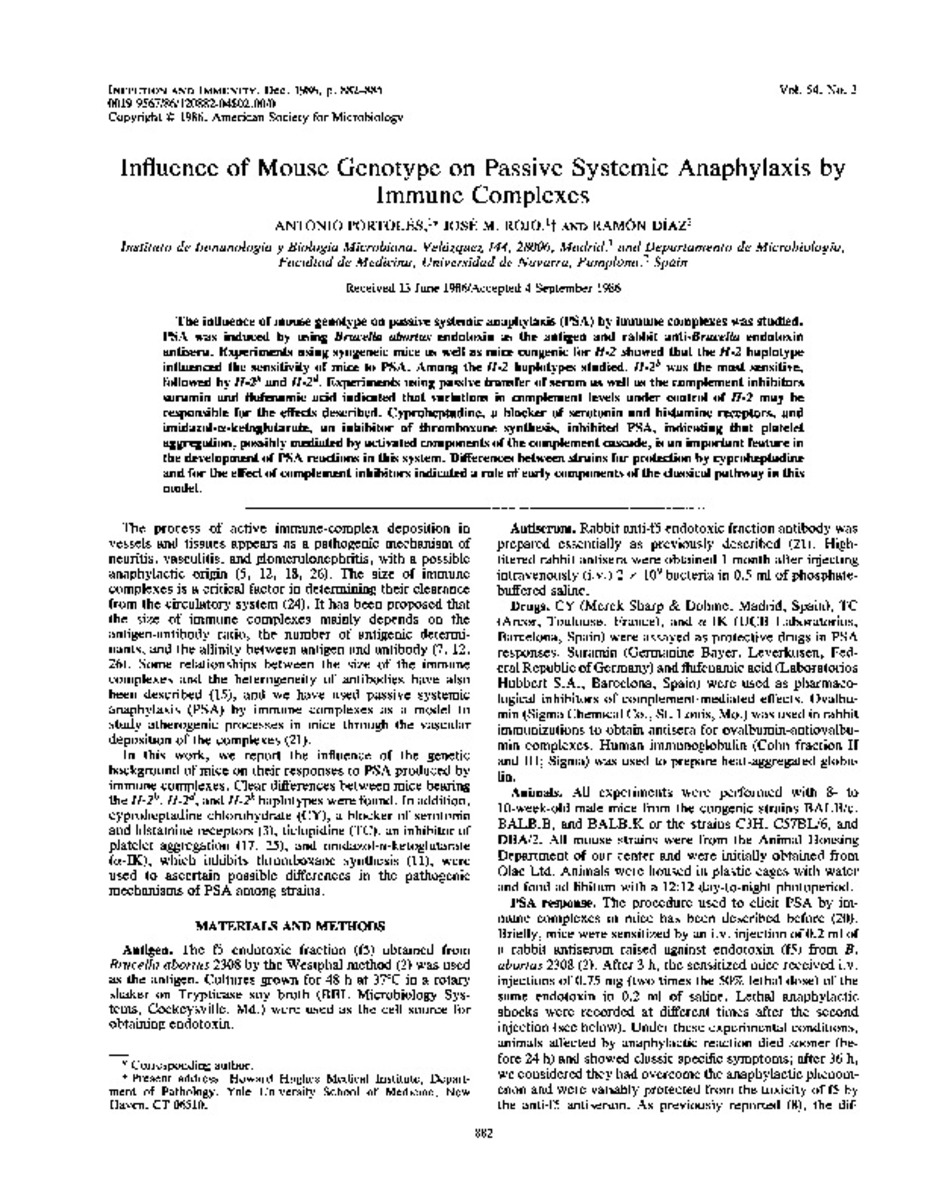Influence of mouse genotype on passive systemic anaphylaxis by immune complexes
Palabras clave :
Anaphylaxis immunology
Antigen-antibody complex
Mice, inbred strains immunology
Fecha de publicación :
1986
Editorial :
American Society for Microbiology
Cita:
Portoles A, Rojo JM, Diaz R. Influence of mouse genotype on passive systemic anaphylaxis by immune complexes. Infect Immun 1986 Dec;54(3):882-885.
Aparece en las colecciones:
Estadísticas e impacto
0 citas en

0 citas en

Los ítems de Dadun están protegidos por copyright, con todos los derechos reservados, a menos que se indique lo contrario.







